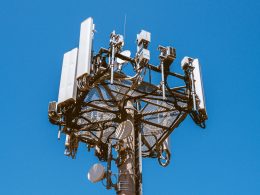As we continue to move towards a more connected world, the need for faster and more reliable enterprise connectivity is becoming increasingly important. With the advent of 5G technology, businesses are now looking towards private networks as the solution to their communication needs. In this blog post, we explore the rise of private 5G networks and how they will shape the future of enterprise connectivity. From improved security to reduced latency, discover why companies are making the switch and how it could benefit your organization in ways you never imagined. So buckle up and get ready to learn about one of the most promising technological advancements that’s set to transform business communications!
What is 5G?
5G is a new mobile telecommunications standard that will allow for faster and more reliable connections than current technologies. It will also allow for the deployment of new services and devices, as well as the expansion of existing ones.
5G will be particularly useful in areas such as healthcare, transportation, and manufacturing. It will allow for the seamless connection of devices and people, allowing for improved efficiency and productivity.
5G will also have implications for enterprise connectivity. Enterprises need to plan for how 5G will impact their networks and how they can best take advantage of its capabilities. They also need to consider how they can build private 5G networks to meet their specific needs.
The Advantages of Private 5G Networks
Private 5G networks offer a number of advantages for businesses. They are faster and more reliable than public networks, and can be tailored to the needs of individual businesses. They also allow businesses to avoid data breaches, since they are not exposed to the same vulnerabilities as public networks. Private 5G networks also provide a level of privacy not available with public networks. This is particularly important for businesses that need to keep sensitive information confidential. Finally, private 5G networks can offer greater flexibility than public networks when it comes to deploying technology in different locations.
Private 5G networks are already being used by some businesses, including large companies like Google and Facebook. These networks are becoming increasingly popular because they offer a number of benefits that public networks don’t have. For example, private 5G networks are much faster than public 4G LTE Networks, which is why they are being used for applications like autonomous driving and remote medical surgeries. They are also more reliable than public 4G LTE Networks, which makes them ideal for applications like e-commerce and connected health care devices.
The biggest advantage of private 5G networks is their ability to tailor them to the needs of individual businesses. This means that a business can avoid data breaches that can occur with publicly-available networked technologies like the internet. Private 5G Networks also provide a level of privacy that’s not possible with publicly-available technologies like the internet or cellphones. This is especially important in cases where sensitive business information needs to be kept confidential
What are the Challenges of Private 5G Networks?
Private 5G networks present a number of challenges for enterprise connectivity. The first challenge is that private 5G networks are still in their early stages and are not yet commercially available. As a result, many companies are not yet able to deploy or use private 5G networks. Additionally, private 5G networks typically require different infrastructure than public 5G networks. This means that companies need to invest in new equipment and technologies to create and operate private 5G networks. Another challenge is that private 5G networks are vulnerable to cyberattacks. As a result, companies need to ensure that their private 5G networks are secure from attack and that they have protocols in place to respond to attacks should they occur. Finally, some companies worry about the privacy implications of using private 5G networks. Many believe that private data transmission channels could be used by companies to track employee movements and other sensitive information. There is still much research needs to be done on the potential privacy implications of private 5G networks before any firm conclusions can be made.
Conclusion
Enterprise connectivity is rapidly evolving, with the rise of private 5G networks. These networks will provide businesses with unprecedented levels of speed and agility, making it easier for them to collaborate and compete on a global scale. By investing in private 5G networks, businesses can secure their future by staying ahead of the curve and seizing opportunities that only arise when technology is constantly advancing.












